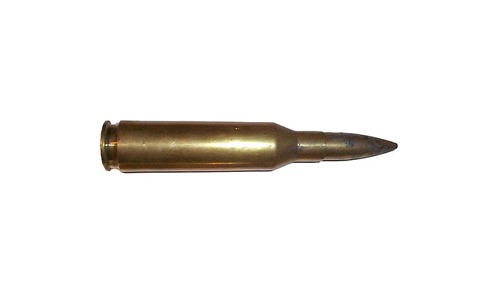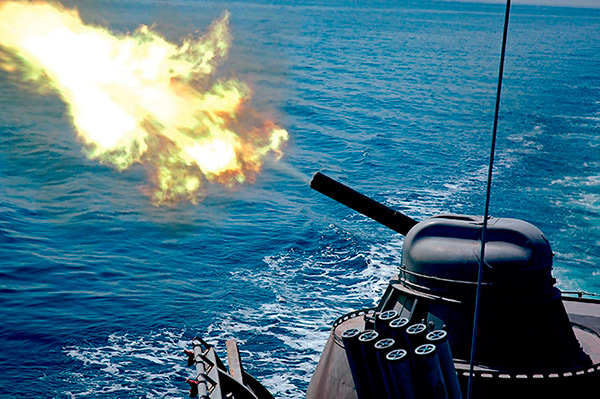14,5х114mm 1941

Performance characteristics
14,5h144mm
Caliber, mm
14,5
Length, mm
155,5
The weight, g
148,0
bullet weight, g
63,4
The weight of powder, g
28,8
Muzzle velocity, m / s
1000
muzzle energy, J.
31700
The cartridge was created in the late 1941 g. for anti-tank rifles PTRD and PTSD, tk. 12,7-mm cartridge found insufficient armor. The emergence of large-caliber ammunition for the weapon was connected with the need to defeat the purposes of the protected. Cartridge 14,5h114 designed to defeat armored targets up to the light and medium tanks. To 1944 years under it produced only anti-tank guns. Purpose weapons and consistent nomenclature bullets: armor-piercing incendiary B-32, BZ-39 and BS-41 (The first and last are similar in construction 12.7-mm bullets). As an experiment to improve efficiency in the bottom portion of the core BS-41 capsule was placed with an irritant Hough (hloratsetofenon). Bullet, dubbed the "armor-piercing incendiary chemicals". After the armor penetration created in zabronevom space intolerable concentration of tear gas and disabling found there manpower. Such an effect has been applied by the Germans for the 7.92-mm anti-tank rifle PzB-39.
Strengthening tanks booking, undertaken by the belligerents during the war, so reduced the efficiency of SSS, they only actually become a means of fire support on a battlefield. Attempts to improve armor by increasing the charge - 14.5 mm cartridge LBP (high initial velocity), obtained pereobzhatiem 23 mm from the gun sleeve load cell 23, - a significant increase of efficiency is not given. However, ballistics 14.5-mm cartridge is suitable not only for fire support and destruction of lightly armored targets, but also to combat air targets at low altitudes. And with the advent of the war at the end of a large-caliber machine gun Vladimirov - CPV - is taken into service 14.5 mm armor-piercing - incendiary - tracer bullet BZT-44.
In 50-60-ies in the Soviet Army-caliber machine guns 14,5 mm practically superseded 12.7-mm weapons. To meet new challenges accepted 14.5-mm rounds with the RFP and MDZ bullets, structurally similar 12.7mm. Bullet BS receives the tracer becomes BLS. Then the brass sleeve was replaced by a cheaper steel, covered with green paint.
modifications
Model
Features
Year
B-32
bponeboyno-incendiary ammunition with steel core, similar in construction to 12.7 mm bullets
1932
BS-39
bponeboynaya bullet from a steel core
1939
BS-41
bponeboyno-rousing with metallokepamicheskim sepdechnikom, similar in construction to 12.7 mm bullets
1941
STIs
armor-piercing incendiary bullet chemical. As an experiment to improve efficiency in the bottom portion of the core BS-41 capsule was placed with an irritant Hough (hloratsetofenon). After the armor penetration created in zabronevom space intolerable concentration of tear gas and disabling found there manpower. Such an effect has been applied by the Germans for the 7.92-mm anti-tank rifle PzB-39.
BNS
Cartridge "high initial velocity", obtained pereobzhatiem 23 mm from the gun sleeve load cell 23
BZT-44
armor-piercing incendiary tracer bullet
1944
ZP
incendiary bullet
MD
incendiary bullet of instant action
TJSC
bponeboyno-incendiary bullet tpassipuyuschaya











